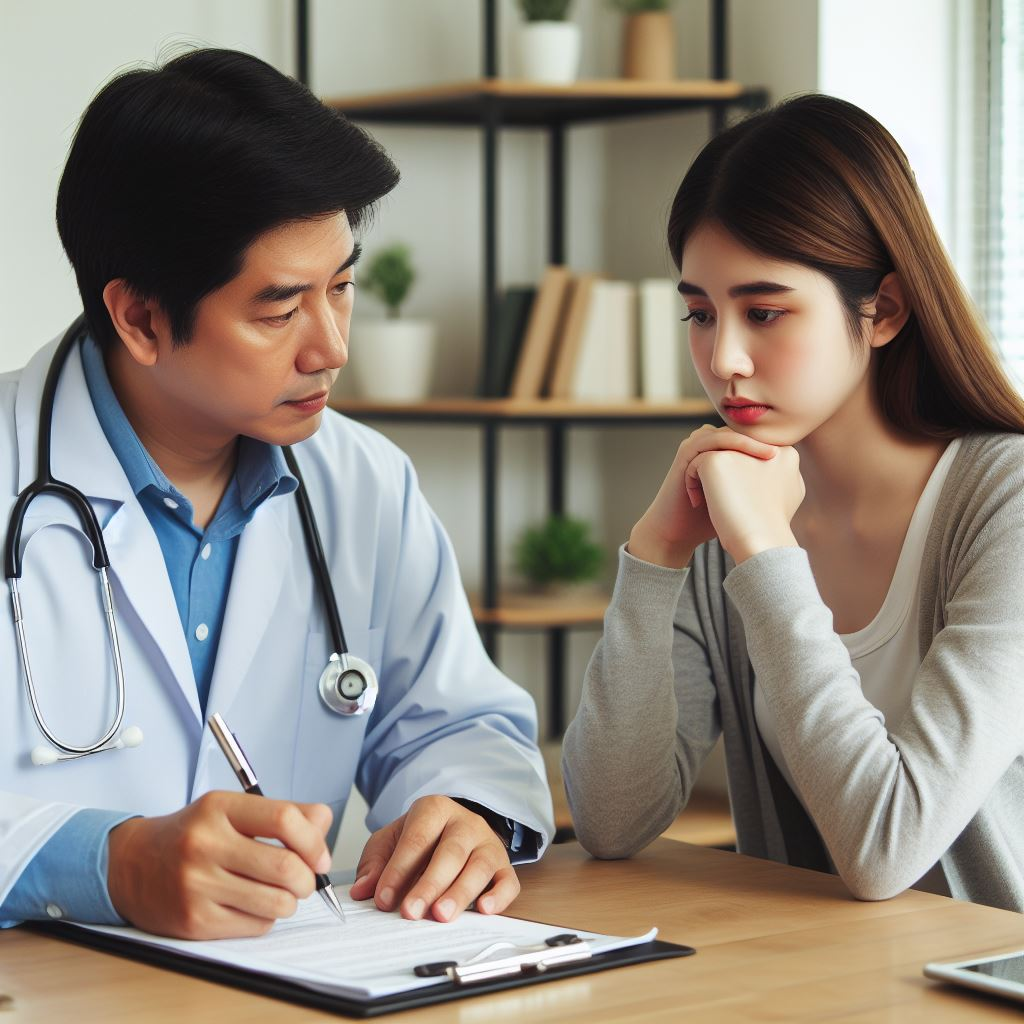Hey there, friend! Let’s talk about something that might be a little uncomfortable, but is totally worth addressing: low libido. It’s a common issue that can affect anyone, regardless of age, gender, or relationship status. And trust me, I get it – it can be tough to navigate.
But here’s the good news: there are ways to deal with low libido and get your spark back! In this article, we’ll explore the reasons behind low libido, and most importantly, provide you with practical tips and strategies to overcome it.
Understanding Low Libido
Low libido refers to a decrease in sexual desire compared to your regular interest in sex. It can be temporary or long-term, affecting people of all genders. Libido is influenced by a complex interplay of biological, psychological, and social factors. While there’s no universally “normal” level of libido, any significant decrease causing distress warrants attention.
1. Common Causes of Low Libido
- Relationship Issues: Emotional disconnect, communication problems, or unresolved conflicts can impact desire.
- Medical Conditions: Chronic illnesses like diabetes, kidney disease, or heart disease may affect libido.
- Hormonal Imbalances: Fluctuations in sex hormones (testosterone and estrogen) can play a role.
- Mental Health Conditions: Anxiety, depression, or stress can dampen sexual desire.
- Certain Medications: Some drugs, such as antidepressants or blood pressure medications, may reduce libido.
- Aging: Hormonal changes and lifestyle shifts can affect sexual appetite.
2. Symptoms of Low Libido
- Decreased interest in any type of sex, including masturbation.
- Fewer sexual fantasies or thoughts.
- Feeling unhappy or distressed about your low desire for sexual activity.
How to boost your Libido?
Now that we’ve covered the basics, let’s dive into the nitty-gritty of boosting your libido. Here are some effective ways to get you started:
1. Effective ways to get you started
- Communicate with Your Partner: Talk to your partner about your feelings and desires. It’s essential to be open and honest about your low libido, and work together to find solutions.
- Get Moving: Regular exercise can increase testosterone levels and improve overall health, which can help boost your libido.
- Manage Stress: Find healthy ways to cope with stress, such as meditation, yoga, or deep breathing exercises.
- Get Enough Sleep: Aim for 7-8 hours of sleep per night to help regulate your hormones and improve your overall mood.
2. Hormone therapy could be a suitable solution for low libido

-
Low testosterone (in both men and women)
-
Low estrogen (in women)
-
High prolactin (in both men and women)
-
Thyroid hormone imbalances (in both men and women)
-
Testosterone Replacement Therapy (TRT): TRT can help increase testosterone levels, which can improve low libido, energy, and overall sexual function.
-
Estrogen Replacement Therapy (ERT): ERT can help restore estrogen levels, which can improve libido, vaginal dryness, and overall sexual function in women.
-
Prolactin Regulation: Medications can help regulate prolactin levels, which can help improve libido and sexual function.
-
Oral Medications: Pills or tablets that contain hormones, which are taken by mouth.
-
Topical Creams: Creams or gels applied directly to the skin, which absorb hormones into the bloodstream.
-
Injections: Hormones injected directly into the muscle or under the skin.
-
Pellets: Small pellets inserted under the skin, which release hormones gradually over time.
-
Diagnose: Identify the underlying hormonal imbalance causing your low libido.
-
Develop a Treatment Plan: Create a personalized plan, which may include HRT, lifestyle changes, or other therapies.
-
Monitor Progress: Regularly check in to monitor your progress, adjust your treatment plan as needed, and ensure any potential side effects are managed.
3. Nonphysical Intimacy
-
Emotional Affection: Show your love and care through nonsexual physical touch, like holding hands, cuddling, or giving hugs.
-
Open Communication: Share your thoughts, feelings, and desires with each other, and actively listen to understand each other’s perspectives.
-
Shared Experiences: Engage in activities, hobbies, or interests together, creating common memories and strengthening your bond.
-
Emotional Support: Be there for each other during challenging times, offering encouragement and support.
-
Intellectual Connection: Engage in meaningful conversations, explore new ideas, and learn together.
-
Spiritual Connection: Share your values, beliefs, and spiritual practices, fostering a deeper understanding and connection.
-
Quality Time: Spend quality time together, focusing on each other and creating opportunities for connection.
-
Trust and Vulnerability: Build trust by being vulnerable, open, and honest with each other.
-
Deeper Emotional Connection: Strengthen your emotional bond, creating a more resilient and supportive relationship.
-
Improved Communication: Develop effective communication skills, reducing conflicts and misunderstandings.
-
Increased Trust: Build trust by being vulnerable and open, fostering a more secure and supportive relationship.
-
Reignited Passion: Nonphysical intimacy can reignite your sexual spark, as emotional connection and closeness can lead to increased desire.
-
Stronger Relationship: Cultivating nonphysical intimacy can lead to a more fulfilling, long-lasting, and healthy relationship.

4. Medication Adjustments
-
Antidepressants: Selective serotonin reuptake inhibitors (SSRIs) and other antidepressants can decrease libido as a side effect.
-
Blood Pressure Medications: Certain beta blockers and diuretics can reduce libido.
-
Anti-Anxiety Medications: Benzodiazepines and other anti-anxiety drugs can decrease libido.
-
Hormonal Medications: Certain hormonal contraceptives, hormone replacement therapies, and steroids can impact libido.
-
Pain Medications: Opioids and other painkillers can reduce libido.
-
Review Your Medications: Share your medication list with your healthcare provider and discuss potential libido-reducing side effects.
-
Explore Alternative Options: Your healthcare provider may recommend alternative medications or adjust your dosage to minimize libido-reducing side effects.
-
Monitor Your Libido: Keep track of your libido and report any changes to your healthcare provider to ensure adjustments are effective.
-
Consider Libido-Boosting Medications: In some cases, medications like testosterone replacement therapy or erectile dysfunction treatments may be prescribed to help restore libido.
By working closely with your healthcare provider, you can identify and address medication-related libido issues, potentially restoring your sexual desire and overall well-being.
5. Additional Tips and Strategies for Overcoming Low Libido
- Aphrodisiacs for Low Libido:
Aphrodisiacs have been used for centuries to boost libido and ignite passion. While their effectiveness may vary, certain foods have been touted for their potential to increase desire and improve sexual health. Here are some popular aphrodisiacs to consider:
-
Oysters: Rich in zinc, oysters support testosterone production and sperm health.
-
Chocolate: Flavonoids in dark chocolate improve blood flow, boosting sexual function and desire.
-
Strawberries: Rich in vitamin C, strawberries support hormone production and overall sexual health.
-
Figs: High in potassium and fiber, figs promote blood flow and overall well-being.
-
Ginseng: This herb is believed to improve sexual function and increase libido.
-
Macadamia Nuts: Rich in healthy fats, macadamia nuts support hormone production and energy.
-
Pine Nuts: High in zinc and magnesium, pine nuts support testosterone production and sexual health.
-
Watermelon: Citrulline in watermelon improves blood flow, supporting sexual function.
-
Honey: Rich in boron, honey supports hormone production and overall sexual health.
-
Pomegranate: Antioxidants in pomegranate promote blood flow and overall well-being.
-
- Practice Self-Care: Take time for yourself, engage in activities that bring you joy, and prioritize your mental health.
- Explore New Experiences: Try new things in the bedroom, like role-playing or experimenting with new positions.
Remember, low libido is common, and seeking help is a positive step toward reclaiming a fulfilling sex life. Be patient with yourself, communicate openly, and prioritize your well-being.
Disclaimer: Always consult a healthcare professional before making significant changes to your health regimen.





